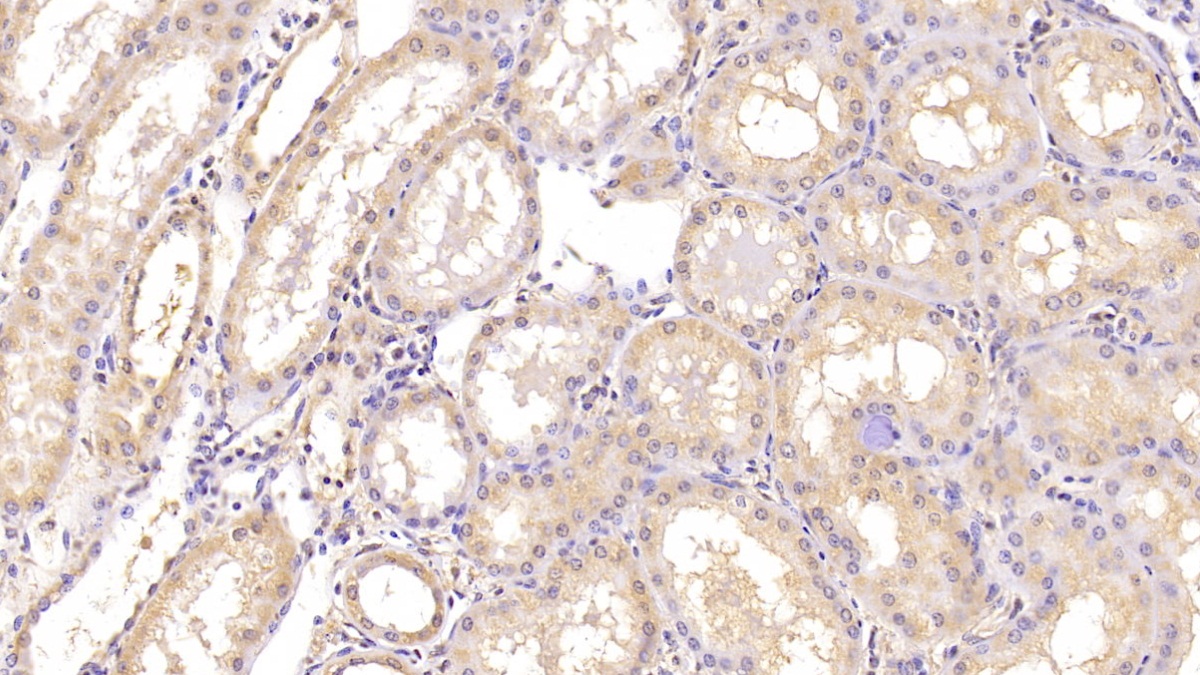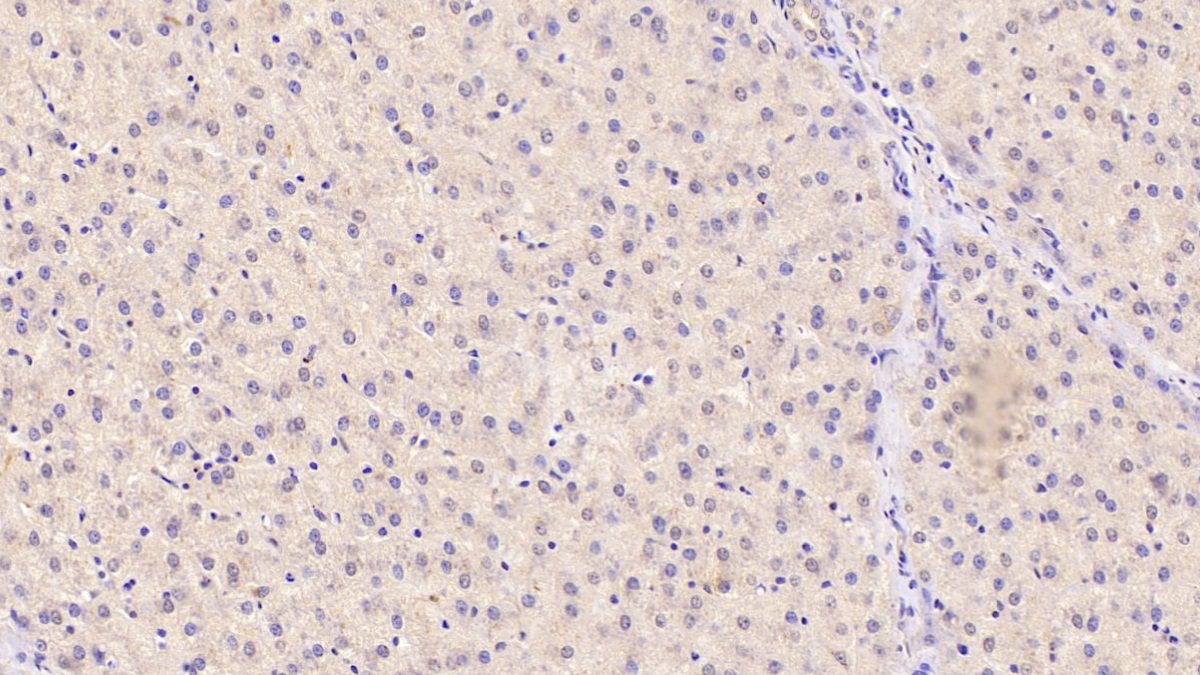血管生长素(ANG)单克隆抗体
Monoclonal Antibody to Angiogenin (ANG)
RNASE5; Ribonuclease,RNase A Family 5
- 编号MAA007Hu23
- 物种Homo sapiens (Human,人)相同的名称,不同的物种。
- 来源单抗制备
- 宿主小鼠
- 效价(克隆号)C1
- Ig亚型 IgG1 Kappa
- 纯化方式蛋白A + 蛋白G亲和纯化
- 标记物无标记物
- 免疫原RPA007Hu01-血管生长素(ANG)重组蛋白
- 缓冲液成份磷酸盐缓冲液(pH7.4,含有0.02% NaN3和50%甘油)
- 性状液体
- 浓度1mg/mL
- 且适物种-
- 应用IHC
如果抗体需用于流式细胞术,请参见流式抗体。 - 下载英文说明书 中文说明书
- 规格20µl100µl200µl1ml10ml
- 价格¥ 662¥ 1546¥ 2208¥ 5520¥ 22080
- 欲了解实际交易价格和更多情况,请与当地经销商联系!
特异性
该抗体是针对ANG的小鼠单克隆抗体。在免疫组织化学染色和免疫印迹实验中能识别ANG。
用法
Western blotting: 0.01-2µg/mL;
Immunohistochemistry: 5-40µg/mL;
Immunocytochemistry: 5-20µg/mL;
Optimal working dilutions must be determined by end user.
储存
经常使用则4°C保存。-20°C保存不超过两年。避免反复冻融。
稳定性
热稳定性以损失率显示。损失率是由加速降解试验决定,具体方法如下:在37°C孵育48小时,没有显著的降解或者沉淀产生。保质期内,在适当的条件下存储,损失率低于5%。
赠品
增值服务
相关产品
| 编号 | 适用物种:Homo sapiens (Human,人) | 应用(仅供研究使用,不用于临床诊断!) |
| RPA007Hu01 | 血管生长素(ANG)重组蛋白 | Positive Control; Immunogen; SDS-PAGE; WB. |
| PAA007Hu01 | 血管生长素(ANG)多克隆抗体 | WB,IHC |
| MAA007Hu21 | 血管生长素(ANG)单克隆抗体 | WB |
| MAA007Hu22 | 血管生长素(ANG)单克隆抗体 | WB; IHC; ICC; IP. |
| MAA007Hu23 | 血管生长素(ANG)单克隆抗体 | IHC |
| MAA007Hu24 | 血管生长素(ANG)单克隆抗体 | IHC |
| SEA007Hu | 血管生长素(ANG)检测试剂盒(酶联免疫吸附试验法) | Enzyme-linked immunosorbent assay for Antigen Detection. |
| LMA007Hu | 血管生长素(ANG)等多因子检测试剂盒(流式荧光发光法) | FLIA Kit for Antigen Detection. |
参考文献
| 杂志 | 参考文献 |
| Inflammopharmacology | Evening primrose oil and celecoxib inhibited pathological angiogenesis, inflammation, and oxidative stress in adjuvant-induced arthritis: novel role of angiopoietin-1[Pubmed: 24664592] |
| Cancer Cell | Angiogenin/Ribonuclease 5 is an EGFR ligand and a serum biomarker for erlotinib sensitivity in pancreatic cancer[Pubmed:29606349] |
| Journal of Immunotherapy | The VE-PTP Inhibitor AKB-9778 Improves Antitumor Activity and Diminishes the Toxicity of Interleukin 2 (IL-2) Administration[Pubmed: 31348125] |
| Clinical Hemorheology and Microcirculation | Nonselective alpha-/beta-AR antagonists can inhibit pericyte proliferation, migration, and secretion in vitro[Pubmed: 32224529] |




